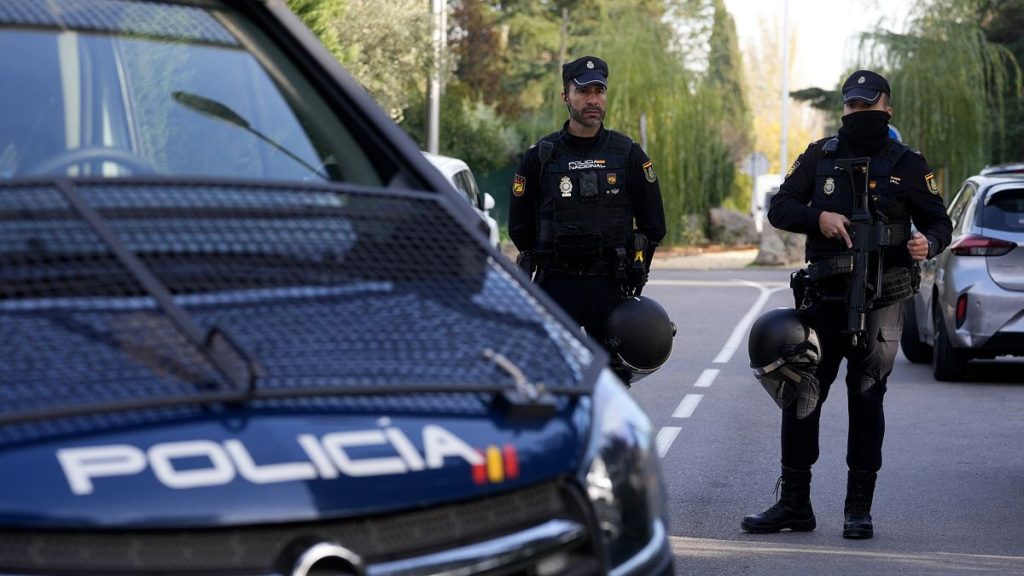This extensive international operation, a testament to the collaborative efforts of Spanish and German law enforcement, successfully dismantled a sophisticated criminal network responsible for defrauding the Spanish Treasury of over €17 million in Value Added Tax (VAT) through an elaborate luxury car import scheme. The operation, spanning 13 provinces in Spain and extending into Germany, culminated in the arrest of over 30 individuals, including the network’s mastermind who resided in Germany and is currently awaiting extradition to Spain. This individual, operating under a false identity to evade capture, had a history of criminal activity with 18 outstanding warrants for offences including drug trafficking and tax fraud. His apprehension marks a significant victory in the fight against international organized crime.
The criminal network’s intricate scheme revolved around exploiting the VAT system on imported luxury vehicles. By utilizing a network of “ghost companies,” essentially shell corporations devoid of genuine business activity, they were able to import these high-value vehicles into Spain without paying the mandatory VAT. This illicit practice allowed them to undercut legitimate dealers by offering the vehicles at significantly lower prices, attracting unsuspecting buyers. The substantial price difference fuelled their illicit business, generating significant profits while simultaneously depriving the Spanish government of substantial tax revenue. The organization’s complex structure, with branches in Levante, Cordoba, and the Costa del Sol, along with a dedicated arm managing the financial aspects of their fraudulent operations, highlights the intricate planning and coordination involved in perpetuating this large-scale fraud.
The investigation leading to the network’s dismantlement involved extensive cross-border cooperation and meticulous investigative work. Over a dozen searches were conducted across Spain and Germany, yielding substantial seizures that shed light on the scale of their illicit activities. Authorities confiscated €307,860 in cash, along with a collection of jewellery and high-end vehicles, likely purchased with the proceeds of their fraudulent scheme. Furthermore, the seizures extended to luxury properties in Spain, Germany, Portugal, and Lithuania, with a combined estimated value exceeding €11 million. These assets, believed to have been acquired through criminal activity, represent the ill-gotten gains accumulated through years of defrauding the Spanish Treasury.
A particularly concerning aspect of this criminal operation was the exploitation of vulnerable individuals. The network preyed on those in precarious circumstances, offering them accommodation and other inducements in exchange for their participation in the fraud. These individuals were then listed as administrators and partners in the ghost companies, effectively acting as figureheads while shielding the true masterminds behind the scheme. This tactic not only allowed the network to operate under a veil of legitimacy but also placed vulnerable individuals at legal risk, potentially facing prosecution for crimes they were coerced into committing.
The success of this operation underscores the importance of international cooperation in combating transnational organized crime. The coordinated efforts of Spanish and German law enforcement agencies allowed for the effective dismantling of a sophisticated criminal network that operated across borders. The apprehension of the network’s leader and the seizure of significant assets represent a significant blow to their operations and send a clear message that such illicit activities will not be tolerated. Furthermore, this case highlights the need for ongoing vigilance and robust measures to prevent the exploitation of vulnerable individuals by criminal organizations.
The intricate details of the scheme, involving ghost companies, tax evasion, money laundering, and the exploitation of vulnerable individuals, reveal the complex nature of modern organized crime. The scale of the fraud, amounting to over €17 million, demonstrates the potential for significant financial losses to governments and the wider economy. This case serves as a valuable lesson for authorities, emphasizing the necessity of robust international collaboration, proactive investigation, and effective legislation to combat increasingly sophisticated criminal networks. It also underscores the importance of protecting vulnerable populations from being exploited as tools in these elaborate criminal enterprises.














